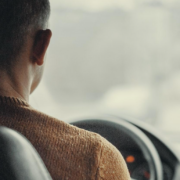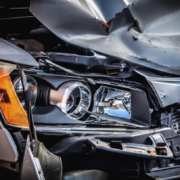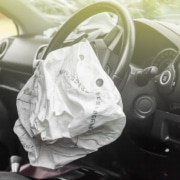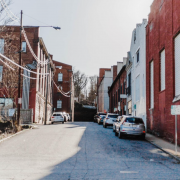A Guide to Virginia Auto Accident Settlement Formulas
If you have been injured in a Lynchburg car accident, there is a strong possibility that you are entitled to an auto accident settlement. A settlement is intended to compensate you for all your damages, including your medical expenses, property damages, and pain and suffering. You may be wondering how much your settlement should be worth. It is essential to familiarize and educate yourself with all aspects of the settlement process, including settlement formulas auto insurance companies frequently use to calculate damages.
What is a Medical Settlement Calculator?
A medical settlement is intended to compensate you for your expenses, including pain and suffering. Medical settlement calculators can help you calculate the monetary value of your injuries from a motor vehicle accident. Essentially, medical settlement calculators help you determine the amount of your legal settlement. To use a medical settlement calculator, you will need to know the amounts for all the different line items, which are different types of damages you have experienced.
The Types of Damages Included in Auto Accident Settlement Formula
There are two main types of damages in car accident settlements — economic and non-economic damages. Economic damages are easily quantifiable damages, such as medical expenses, lost income, and loss of earning capacity. Non-economic damages are just as important, but they include compensation for costs more difficult to quantify. In auto accident settlement formulas, non-economic damages are often calculated based on the final amount of economic damages.
Medical Expenses
When car accident victims suffer a serious injury, their medical expenses are usually the highest type of damage. The attorneys at Straw Law Firm regularly work with financial experts to ensure that we account for our client’s current and future medical expenses. Keeping an organized and correct record of medical expenses is the best way to ensure that your account is for every dollar. Keep careful records of all of the following medical expenses:
- Doctor visits, including visits with specialists
- Surgeries
- Outpatient treatment
- Rehabilitative treatment
- Prescription medication
- Durable medical equipment
- Adaptive medical equipment
Tips for Recovering the Full Compensation You Deserve for Your Medical Expenses
Remember, after you accept a settlement agreement, you will not be able to pursue compensation for additional medical expenses in the future that were not accounted for in the settlement. It is important to talk to your doctor about all of your symptoms, even if you think they are mild. Your medical provider will be able to make notes in your medical record regarding your symptoms, making it more likely to be accepted by an insurance adjuster as part of your settlement calculation.
Property Damage
Most serious car accidents involve damage to your vehicle. An attorney can hold the insurance company accountable for thoroughly assessing the damage to your vehicle. In some cases, insurance companies attempt to undervalue damage to your vehicle or refuse to declare the vehicle as totaled when they should. The attorneys at Straw Law Firm will fight to ensure that all of your property damage is accounted for when the insurance company calculates the settlement amount.
Lost Income
After being injured in a car accident, it is important that you write down every day that you need to take off from work due to your injuries. Keep track of any vacation or paid time off that you use to recover. If you lose out on other employment benefits, such as promotions, you should include that in the total. Victims who become permanently disabled due to their injuries can recover compensation for their future loss of earnings.
Future Expenses
Future expenses can be more difficult to calculate. In cases of serious injuries, our attorneys work with medical and financial experts to determine the cost of future medical expenses, such as additional surgeries, rehabilitation, or in-home medical care. Again, insurance companies frequently undervalue the full cost of future medical expenses.
Non-Economic Damages
Non-economic damages are more difficult to quantify. You can recover compensation for your pain and suffering, emotional distress, and loss of consortium. Car accidents can be traumatic, causing anxiety, depression, and serious pain. Undergoing multiple surgeries can cause immense pain. Many car accident victims lose their ability to engage in the activities they once loved. Serious injuries can also negatively impact relationships with other family members.
The Auto Accident Multiplier
Insurance adjusters frequently use the auto accident multiplier to determine a value for the economic and non-economic damages. The adjuster will assign a multiplier to the claimant’s economic damage between one and five. The multiplier is based on the case’s facts and the injuries’ severity. For example, a broken arm in a minor accident will typically be considered minor damages that receive a multiplier of 1.5.
More serious injuries such as traumatic brain injuries (TBI) or spinal cord injuries that result in permanent damage may receive a higher multiplier, such as a 4 or 5. If you believe that the insurance adjuster is assigning a multiplier that is too low in your claim, a personal injury attorney can negotiate the number with the adjuster.
The Auto Accident Formula
Once the multiplier has been agreed upon, the adjuster will multiply that number by the amount of the special damages. The sum is the number that insurance companies typically use as a starting point to discuss car accident settlements. Suppose a claimant’s economic damages total $500,000. The victim suffered a serious brain injury, and the adjuster assigned the case a multiplier of 5. In that case, the claimant would be entitled to $2.5 million in total damages. As you can see, ensuring that the economic damages and the multiplier correctly reflect your injuries is crucial for recovering the total amount of damages you deserve.
Contact a Virginia Car Accident Attorney Today
If you or your loved person have been injured in a car accident in Lynchburg or Virginia, we recommend discussing your case with an experienced attorney. Straw Law Firm will negotiate the most compensation possible in your auto accident claim. Contact Straw Law Firm today to schedule your free initial consultation.











